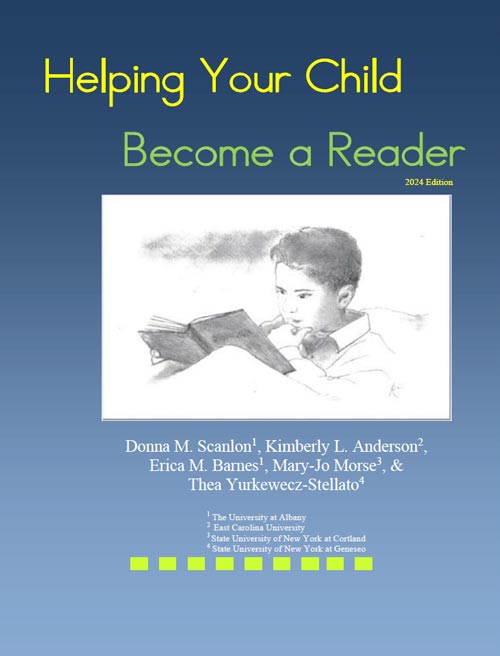The resource section of litereacyreserchcommons.org is intended to extend the conversation about policies and practices that are grounded in research about literacy development, learning, and teaching. If we post a resource, it means that we believe the resource is worthy of your study and examination. It does not necessarily mean that we agree with each and every idea within the resource. Indeed, in the spirit of genuine debate, we will, from time to time, post resources that are in tension with our own views on literacy research and practice. For some, not all, resources we also provide our own introduction, as a way of indicating why we think this particular resource deserves special attention.

Helping Your Child Become a Reader
Donna M. Scanlon, Kimberly L. Anderson, Erica M. Barnes, Mary-Jo Morse, & Thea Yurkewecz-Stellato
Learning to read and write is exciting for children. The goal of this booklet is to provide caregivers with some information about how they can help young learners become readers and writers. We address some of the common questions and concerns that caregivers pose.
